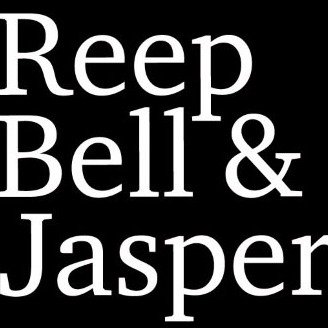Best Sanctions & Export Controls Lawyers in Montana
Share your needs with us, get contacted by law firms.
Free. Takes 2 min.
Or refine your search by selecting a city:
List of the best lawyers in Montana, United States
About Sanctions & Export Controls Law in Montana, United States
Sanctions and export controls are sets of laws and regulations that govern the movement of goods, technology, and services across U.S. borders. These rules are designed to protect national security, further foreign policy objectives, and prevent the spread of sensitive technologies. While these laws originate from federal authorities, including the U.S. Department of the Treasury and the U.S. Department of Commerce, they affect individuals and businesses in every state, including Montana. Montana-based businesses engaged in importing, exporting, or providing cross-border services must comply with these regulations or risk facing significant criminal, civil, or administrative penalties.
Why You May Need a Lawyer
Navigating sanctions and export controls in Montana can be complex. Here are some common situations where seeking legal advice is essential:
- Launching, expanding, or acquiring a business involved in international trade.
- Exporting sensitive technologies, software, products, or information overseas.
- Dealing with foreign customers, suppliers, or business partners in sanctioned countries.
- Responding to government inquiries, audits, or investigations regarding export practices.
- Receiving a warning, penalty, or notice of violation related to export controls or sanctions.
- Uncertainty about licensing requirements for exporting particular goods or technical data.
Export controls and sanctions involve complex federal rules and carry severe consequences for non-compliance. An experienced lawyer can help you understand your obligations, minimize risks, and handle government interactions effectively.
Local Laws Overview
Although most sanctions and export controls applicable in Montana stem from federal law, such as the Export Administration Regulations (EAR) and the International Traffic in Arms Regulations (ITAR), companies and residents must also pay attention to any state-specific implications.
In Montana:
- There are generally no separate state-level trade sanctions, but Montana businesses are still bound by all federal sanctions regimes, including those related to dealings with embargoed countries or restricted persons.
- Montana customs brokers, freight forwarders, and logistics companies must observe both federal and state licensing for their business activities, ensuring they do not facilitate illegal exports.
- Federal compliance is regularly enforced within the state by U.S. Customs and Border Protection (CBP) offices, as well as by the U.S. Department of Homeland Security and the Federal Bureau of Investigation.
- Montana businesses working in defense, energy, agriculture, and information technology are particularly affected given the sectors often interface with controlled goods or sensitive markets.
It is crucial for individuals and organizations in Montana to stay updated about both federal compliance matters and specific local practices for implementation and enforcement.
Frequently Asked Questions
What are sanctions and export controls?
Sanctions are restrictions on trade or financial transactions with particular countries, entities, or individuals. Export controls are rules that restrict the export and re-export of certain goods, technologies, and software for reasons of national security, foreign policy, or trade protection.
Do Montana businesses have to comply with U.S. sanctions and export control laws?
Yes, all businesses and individuals in Montana must comply with U.S. sanctions and export control laws, regardless of their size or industry.
What products and technologies are subject to export controls?
Export controls can apply to items ranging from military equipment to dual-use technologies, software, chemicals, and even technical data. The product's classification under federal regulations determines the level of control.
Are there exceptions for agricultural exports common in Montana?
Some exemptions for agricultural products exist but often depend on the specific product, destination country, and type of transaction. Exporters must verify whether a license, exception, or exclusion applies.
How can I determine if my customer is on a restricted or sanctioned list?
The U.S. government maintains several lists, such as the Specially Designated Nationals (SDN) list and Entity List. Businesses should screen all foreign parties against these lists before proceeding with transactions.
What should I do if I receive a government inquiry about my exports?
You should respond promptly and truthfully. It's advisable to consult a lawyer experienced in sanctions and export controls to guide you through the process and protect your interests.
What are the penalties for violating export control laws in Montana?
Penalties can include severe fines, loss of export privileges, and even criminal prosecution. The consequences often depend on the nature and intent of the violation.
Do I need a special license to export goods from Montana?
Depending on what you are exporting and to whom, you might need a license from the U.S. Department of Commerce, U.S. Department of State, or the U.S. Department of Treasury’s Office of Foreign Assets Control. A legal professional can help you determine licensing requirements.
How can Montana educational institutions comply with export controls?
Universities and research organizations must observe export controls when sharing technical data, software, or research findings with foreign individuals or entities, even within the state. Compliance programs and training are typically necessary.
Can sanctions and export controls impact individuals and personal shipments?
Yes, individuals sending gifts, dual-use items, or funds to certain countries or persons may be subject to these laws. Violations, even unintentional, can lead to heavy penalties.
Additional Resources
If you need more information or help, consider these resources:
- U.S. Department of the Treasury - Office of Foreign Assets Control (OFAC): Administers and enforces economic and trade sanctions.
- U.S. Department of Commerce - Bureau of Industry and Security (BIS): Oversees the Export Administration Regulations (EAR).
- U.S. Department of State - Directorate of Defense Trade Controls (DDTC): Handles defense-related exports and International Traffic in Arms Regulations (ITAR).
- Montana Department of Commerce: For guidance on state-level business registrations and export support.
- Local trade associations and chambers of commerce: May offer compliance programs and networking opportunities.
Always cross-check your situation with these authorities and consider reaching out for guidance specific to your business or activities.
Next Steps
If you require legal assistance navigating sanctions and export controls in Montana, here are steps you can take:
- Consult a Montana-based attorney with experience in international trade law, sanctions, and export controls.
- Prepare documentation outlining your business activities, export or shipment history, customers, and products involved.
- Reach out to local trade organizations for referrals to legal counsel or compliance specialists.
- Consider internal compliance assessments or audits to identify and address potential risks before an issue arises.
Legal requirements in this field change frequently, and non-compliance can have serious implications. Taking proactive steps, including seeking professional legal advice, will help you navigate Montana’s legal landscape with confidence and minimize your exposure to risks.
Lawzana helps you find the best lawyers and law firms in Montana through a curated and pre-screened list of qualified legal professionals. Our platform offers rankings and detailed profiles of attorneys and law firms, allowing you to compare based on practice areas, including Sanctions & Export Controls, experience, and client feedback.
Each profile includes a description of the firm's areas of practice, client reviews, team members and partners, year of establishment, spoken languages, office locations, contact information, social media presence, and any published articles or resources. Most firms on our platform speak English and are experienced in both local and international legal matters.
Get a quote from top-rated law firms in Montana, United States — quickly, securely, and without unnecessary hassle.
Disclaimer:
The information provided on this page is for general informational purposes only and does not constitute legal advice. While we strive to ensure the accuracy and relevance of the content, legal information may change over time, and interpretations of the law can vary. You should always consult with a qualified legal professional for advice specific to your situation.
We disclaim all liability for actions taken or not taken based on the content of this page. If you believe any information is incorrect or outdated, please contact us, and we will review and update it where appropriate.
Browse sanctions & export controls law firms by city in Montana
Refine your search by selecting a city.













